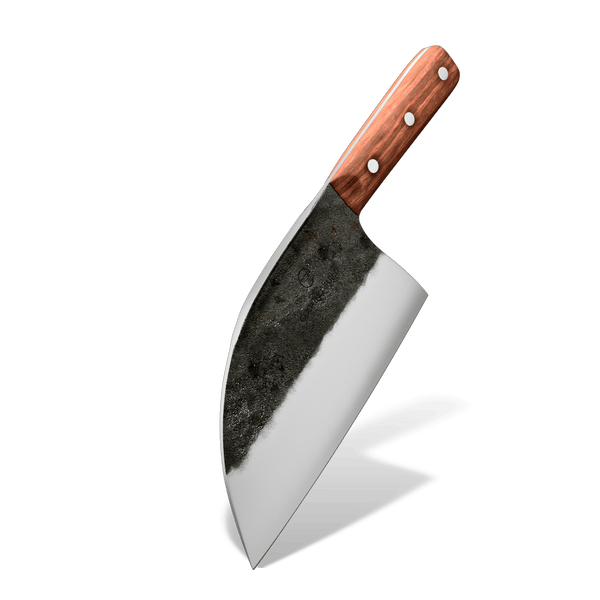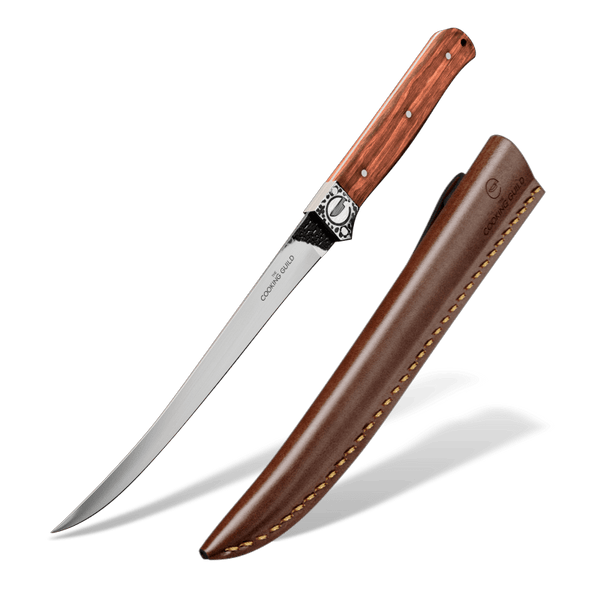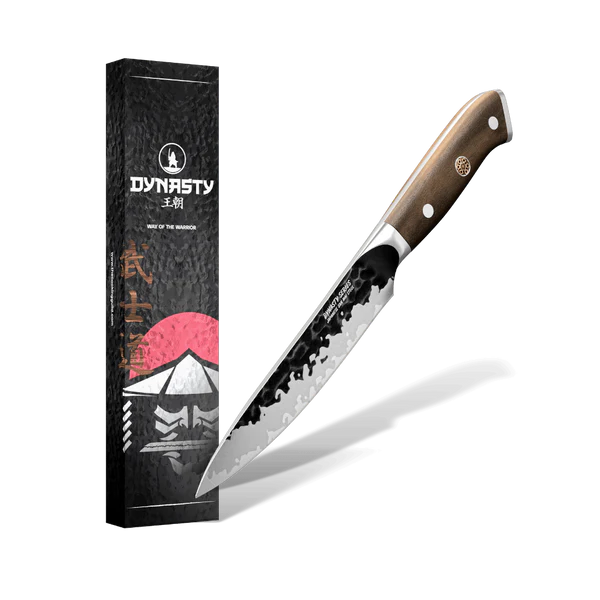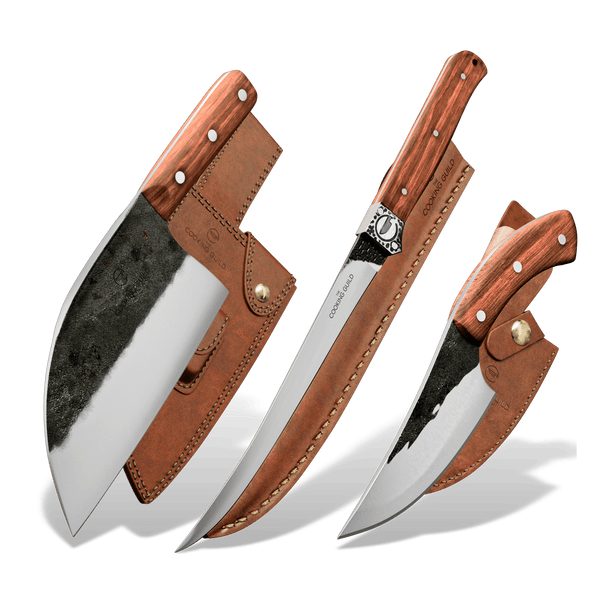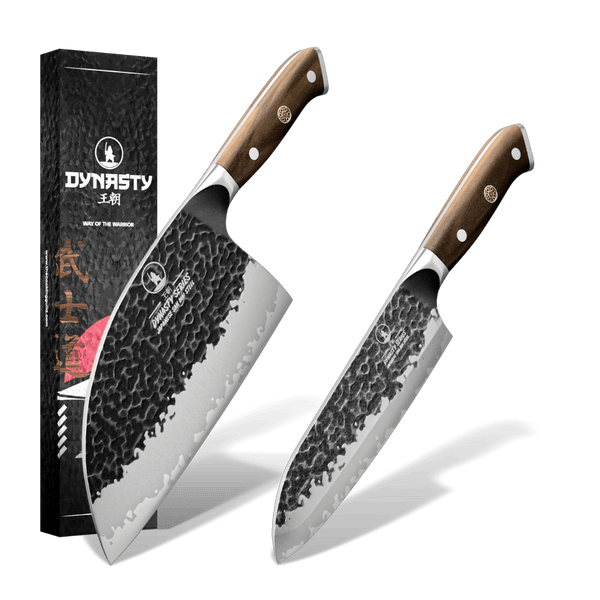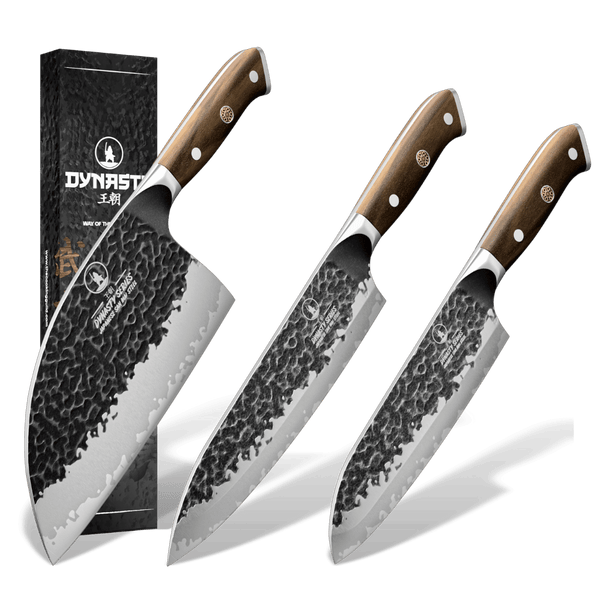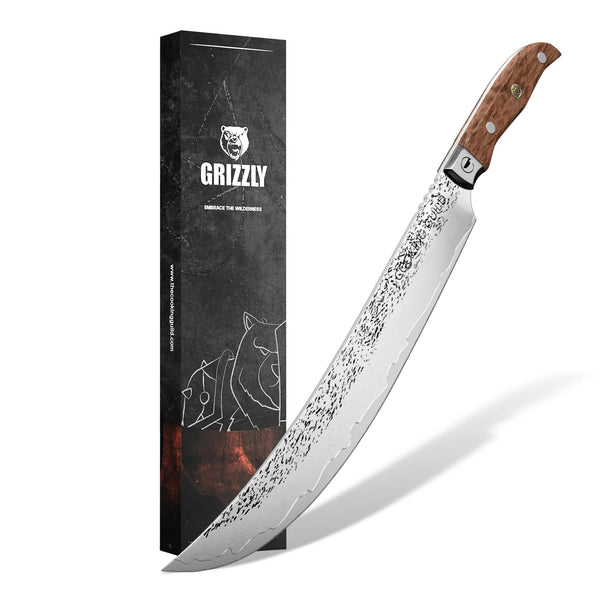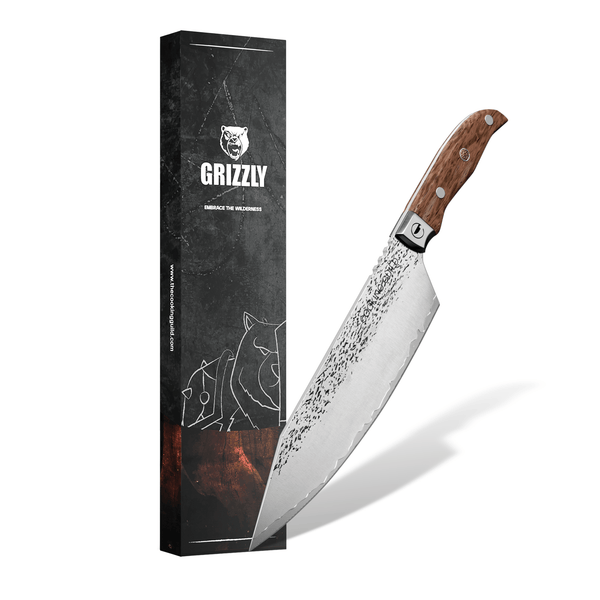A high-quality knife is an indispensable tool in the kitchen, but proper care and maintenance are crucial for keeping it in optimal condition. In this blog post, we'll discuss essential tips for caring for your cooking knives, ensuring that they remain sharp, functional, and long-lasting.
#1. Maintain Knife Cleanliness after Each Use
When using a high carbon steel knife, it's important to clean it after cutting acidic ingredients like lemons, tomatoes, and onions. The acid in these foods can corrode the knife's blade over time. Even if you have a stainless steel knife that resists rust, neglecting proper cleaning can lead to rust patterns forming on the blade, especially near the cutting edge where the stainless steel may have worn away. Therefore, it is recommended to wipe the knife with a kitchen towel to remove any food particles after every use.

#2. Cleanse Your Knife with Soapy Water
To ensure hygiene and prevent corrosion, it is best to wash your knife with mild soap and hot water immediately after use. Avoid soaking the knife, as it can oversaturate the handle and promote bacterial growth. Handwashing is the ideal method to keep your knives clean and well-maintained.
#3. Dry Your Knife Immediately
Instead of letting your knife air dry, which can lead to rusting and germ buildup, it is advisable to use a hand towel or paper towel to dry it as soon as you have washed it. Pay attention to the blade edge and avoid touching it when drying. Additionally, consider applying a small amount of neutral oil to the knife after drying, using a paper towel. This can help maintain its condition. Placing the knife on a flat surface while polishing can minimize the risk of accidental cuts.
#4. Sharpen and Hone Your Knife
Regular sharpening is crucial to maintain a sharp and safe knife. Consider getting a professional tune-up once a year or sharpen the knife yourself if it appears dull. Whetstones and leather strops are effective tools for sharpening the blade, while a honing rod can help align the edge of the knife. A dull knife requires more pressure during use, increasing the risk of accidents and injuries. You can sharpen your knife twice a year and hone it before each use.
The choice between honing and sharpening depends on the type of knife. Japanese-style knives made of hard steel require whetstones for sharpening, while honing rods are suitable for correcting the edge of softer Western-style knives. Chefs generally prefer harder steel knives as they maintain their edge for longer periods.
#5. Proper Knife Storage Matters

Take care when storing your knives to maintain their condition. To prevent damage, consider using protective sheaths or knife blade covers to minimize contact with other utensils. These sheaths provide an additional layer of protection and help preserve the sharpness of the blades. When knives come into contact with other utensils, they can chip, break, or lose their sharpness. By using protective sheaths, you can significantly reduce the risk of such damage.
Using a kitchen knife block is another option for storing your knives safely. Alternatively, a magnetic knife rack can be convenient, but ensure that the blades are facing upward to avoid accidental injuries when accessing the knives.
#6. Handling and Cutting Techniques
Using proper handling and cutting techniques can significantly impact the longevity of your knives. Maintain a secure grip on the knife handle, keeping your fingers away from the blade to prevent accidents. Use appropriate cutting surfaces, such as wooden or plastic cutting boards, to avoid dulling the blade on hard surfaces like glass or marble.
#7. Avoid Dishwasher Cleaning
Using a dishwasher to clean your knife is not recommended. The high heat and prolonged exposure in the dishwasher can be detrimental to your knife, especially if it has a wooden handle or is made of resins. The excessive heat can compromise the knife's integrity, and the water from the dishwasher can oversaturate the handle, leading to bacterial growth.
Keep Your Knives in Top Condition
By following these care and maintenance tips, you can ensure that your cooking knives remain sharp, functional, and long-lasting. Proper cleaning, sharpening, honing, storage, and handling techniques all contribute to the overall performance and lifespan of your kitchen tools, making your culinary endeavors more enjoyable and successful.
